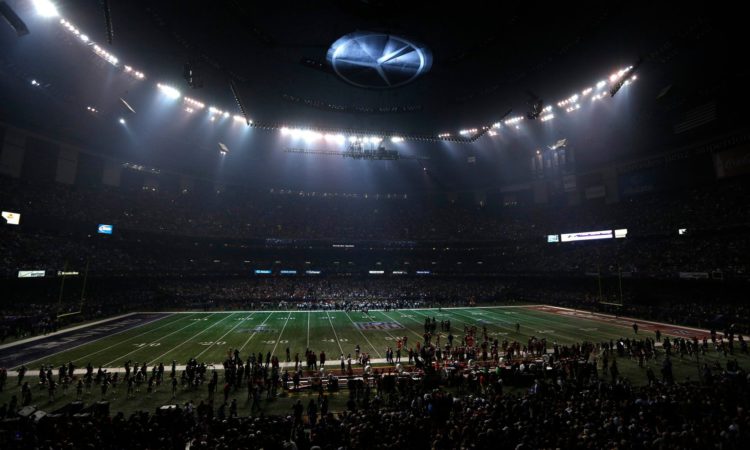Though Sunday’s Super Bowl was an unqualified success for sports-betting platforms, the day was not without its tech challenges.
The big hitters including Barstool Sportsbook, BetRivers and DraftKings Sportsbook suffered a glitch – some beyond their control, it now appears – when their customers endured a connection outage.
According to a story from Legal Sports Report, an outside vendor took the blame.
Technology provider Kambi offered a transparent explanation during its year-end earnings call Wednesday.
Instead, the outage stemmed from one specific market (though Kambi CEO Kristian Nylén wouldn’t identify it).
Nylén explained:
“The issue experienced prior to kickoff was related to one particular bet offer for which we increased the number of possible outcomes especially for the Super Bowl. This bet offer was the third-most popular offer on the day and, due to the extended number of outcomes, required extra technical capacities as part of our bet validation process. Unfortunately, this additional capacity caused a backlog and slowed, and eventually stopped, the bet validation process for all bets.”
Kambi said it discovered a problem at a little after 5 pm Eastern, with kickoff approaching at around 6:40 pm bet validation was sputtering during that time, and Nylén said no bets were accepted for 30 minutes overall and that the longest consistent outage was 22 minutes.
Nylén expressed confidence that the issue wouldn’t repeat.
Kambi had no issues with the unexpectedly high betting volume, adding the Tampa Bay-Kansas City matchup was the most-bet event ever.
Data from GeoComply revealed more than triple the legal online sports wagering compared with Super Bowl weekend 2020.
For now, a good deal of sportsbook operators don’t own their platforms, so they use Kambi for its turnkey trading technology. And that furthered the discussion about platforms trying to establish their own technology.
DraftKings’ acquisition of SBTech will enable a switch from Kambi’s platform later this year.
FanDuel Sportsbook also had its own issues Sunday. Customers in Illinois, Pennsylvania and Michigan, which just recently launched its sports-betting access, couldn’t log into their accounts or place bets.
FanDuel said it was because of unprecedented demand, Legal Sports Report wrote, “though similar issues plagued the sportsbook on multiple NFL Sundays this season.”
DraftKings said it was aware of the technical issues.
“We’re aware customers were unable to access our mobile and online Sportsbook. … Our DFS and pools products, supported by in-house technology, are functioning without issue. This incident is why we believe owning our own technology is important," DraftKings said in a statement to Fox Business.
FanDuel added in a tweet: “We are aware customers in MI and IL are having trouble logging in and placing wagers on the Sportsbook platform. Our team is working on resolving this issue as quickly as possible and we will provide any updates here. We apologize for any inconvenience!”
In a conference call, Kambia’s Nylén recognized the loss of potential clients including DraftKings.
“Having said that,” Nylén said, “Penn and Barstool, they have shown very, very strong numbers early on. I think there’s quite a good potential of Penn taking a very, very strong position in the US as well.”
The Look-Ahead for Regulated Operators
Industry reports show that more than $20 billion has been bet on sports since the Supreme Court allowed states to legalize sports wagering in 2018. Now, more than 80% of sports bets are online.
The Super Bowl, as evidenced above, was a big test for betting apps with the bulk of the almost $500 million in wagers being placed online.
Sports betting growth in the US is palpable, with 20 states and Washington, DC, allowing it, and even New York perhaps nearing legalization.
Rising use of smartphones and internet infrastructure to assist in participation, among other dynamics, are driving interest. The pandemic and the rise of disposable-income-carrying millennials are helping to push the trend.
"The millennial generation surpassed the baby boomers, a key target market of the casino industry, in size around the year 2014," said Stockton University professor Jane Bokunewicz, who studies millennial leisure habits, to Investor’s Business Daily. "This gap will continue to widen into the future, so casino operators need to re-imagine the casino floor to stay relevant."
There are 50 million more Americans in 2021 who can bet on sports than in 2020, according to PlayUSA.com, a news, research and analysis site covering online gambling.
The industry is no longer easily ignored among prospective states. In the Fox Business story, a report this month from consulting firm VIXIO estimated that the industry could be worth $7.3 billion to $10 billion in total revenue by 2025.
It’s only going to become more a part of everyday life.
